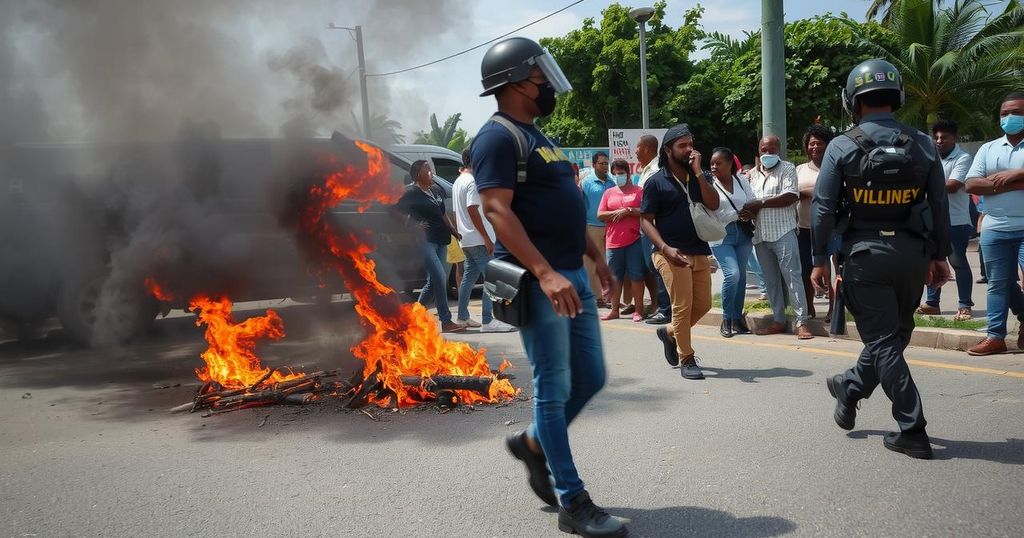Mozambique has experienced violent protests for nearly two months, resulting in over 110 deaths, including children, due to actions by security forces amid allegations of electoral fraud following the October 9 election. The opposition calls for continued demonstrations against the long-governing Frelimo party, exacerbated by recent political assassinations. The situation reflects a significant challenge to Frelimo’s authority as tensions escalate across the nation.
In the aftermath of the disputed presidential election that took place on October 9, Mozambique has witnessed extensive protests resulting in the tragic loss of over 110 lives, including children. Rights organizations, such as Plataforma Eleitoral Decide and Amnesty International, have reported on these fatalities, attributing them to the actions of security forces during a period of civil unrest that has persisted for nearly two months. The situation escalated significantly following the assassination of two prominent opposition figures on October 18, which intensified public dissent against the ruling Frelimo party’s long-standing governance.
Protests have erupted across Mozambique as demonstrators express discontent over alleged electoral fraud, with opposition leader Venancio Mondlane leading calls for further actions against the regime. Despite the protests beginning peacefully, authorities have resorted to aggressive measures, which have resulted in an alarming number of civilian fatalities. While the government contends that these actions necessary to quell violence, rights groups assert that the response has escalated tensions and led to a systematic crackdown on dissenters.
As the political climate remains volatile, thousands have ignited demonstrations throughout major cities, engaging in obstructive and defensive actions, including road blockades and arson targeting police and Frelimo properties. These developments pose significant challenges to Frelimo’s governance as it prepares to inaugurate Daniel Chapo as president on January 15, amidst ongoing legal controversies surrounding the election outcomes. As such, the political tensions and public outcry highlight the fragile state of democracy in Mozambique and the pressing need for accountability and transparency regarding electoral conduct.
The unrest in Mozambique is rooted in deep-seated frustrations with the political landscape, particularly following the recent election, which many believe was marred by irregularities. The Frelimo party has maintained a grip on power since Mozambique’s independence in 1975, which has engendered distrust and anger among opposition groups and the general populace. The assassination of key opposition leaders has served as a catalyst for widespread protests, which have escalated despite efforts by authorities to suppress them. The response from security forces has raised significant concern regarding human rights violations, drawing attention from international observers and rights organizations.
The escalating violence and ongoing protests in Mozambique underscore a critical juncture in the nation’s political history. As claims of electoral fraud proliferate and reports of excessive force by security personnel emerge, the call for accountability becomes increasingly vital. The situation remains precarious, with the opposition poised to mobilize further actions against a government they deem illegitimate. The international community is watching closely as Mozambique navigates this complex political turmoil.
Original Source: abcnews.go.com







